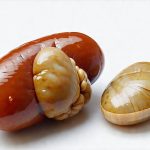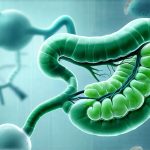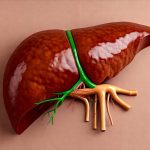The gallbladder, often underestimated, plays a vital role in digestion. This small organ stores bile, a fluid produced by the liver, which helps break down fats during digestion. When fat enters your small intestine, the gallbladder releases bile to emulsify these fats, making them easier for the body to absorb. However, modern diets frequently overloaded with fats can put significant stress on this hardworking organ, increasing the risk of gallstones and other related health concerns. Understanding how dietary choices influence gallbladder health is crucial for maintaining overall wellbeing and preventing potential discomfort or complications. A balanced approach focusing on mindful fat intake isn’t about complete elimination; it’s about making informed decisions to support optimal function.
Many people associate gallbladder issues with sudden, intense pain, but problems can often develop silently over time. Chronic inflammation from consistently high-fat diets, for instance, can lead to the formation of gallstones without noticeable symptoms until they begin to cause blockage or other complications. This is why proactive dietary management is so important. It’s not just about treating gallbladder issues when they arise; it’s about preventing them in the first place and supporting healthy digestive function long-term. Reducing fat intake, particularly saturated and trans fats, combined with a focus on whole foods and adequate hydration, can significantly contribute to a healthier gallbladder and improved digestion.
Understanding Fat Intake & Gallbladder Function
The relationship between dietary fat and gallbladder health is complex but straightforward: the more fat you consume, the harder your gallbladder has to work. This isn’t inherently bad – the gallbladder needs to function! However, consistently demanding excessive effort can lead to strain and ultimately, problems. Different types of fats impact the gallbladder in different ways. Saturated and trans fats are particularly problematic because they increase cholesterol levels in bile, raising the risk of gallstone formation. Unsaturated fats (monounsaturated and polyunsaturated) are generally considered healthier and less likely to contribute to these issues when consumed in moderation.
It’s also important to remember that all fat isn’t equal in terms of digestive stress. Highly processed foods containing hidden fats, like those found in fast food or commercially baked goods, can be more difficult for the gallbladder to process than naturally occurring fats from whole foods. This is partly because these processed foods often lack essential nutrients and fiber which aid digestion. Furthermore, rapid fluctuations in fat intake – going from very low-fat to extremely high-fat meals – forces the gallbladder to work unpredictably, potentially increasing the risk of complications.
A gradual reduction in overall fat consumption, coupled with a shift towards healthier fat sources, is generally recommended for supporting gallbladder health. This doesn’t mean eliminating fats entirely; healthy fats are essential for nutrient absorption and hormone production. Rather, it means being mindful of portion sizes, reading food labels carefully, and prioritizing whole, unprocessed foods whenever possible. Focus on incorporating more lean proteins, fiber-rich vegetables, and complex carbohydrates into your diet to balance out fat intake and promote overall digestive health.
Strategies for Reducing Fat Intake
Reducing fat intake doesn’t have to feel restrictive or deprive you of enjoyable meals. It’s about making smart substitutions and adopting healthier cooking habits. Here are some practical strategies:
- Prioritize lean protein sources: Choose skinless poultry, fish (especially fatty fish rich in omega-3s), beans, lentils, and tofu over red meat and processed meats.
- Embrace low-fat cooking methods: Bake, grill, steam, or poach your food instead of frying. Use minimal oil when cooking.
- Read food labels carefully: Pay attention to the total fat content, saturated fat content, and trans fat content. Avoid foods high in these unhealthy fats.
- Substitute healthier oils: Replace butter, lard, and shortening with olive oil, avocado oil, or flaxseed oil.
A simple step is swapping out full-fat dairy products for low-fat or non-fat alternatives. Consider using Greek yogurt instead of sour cream, or skim milk instead of whole milk. Another effective technique is to trim visible fat from meat before cooking and removing skin from poultry. Be mindful of hidden fats in sauces, dressings, and condiments – often these can significantly increase the overall fat content of a meal.
The Role of Fiber and Hydration
Fiber plays a crucial role in supporting gallbladder health by aiding digestion and promoting regular bowel movements. It helps to regulate bile flow and prevent constipation, which can contribute to gallstone formation. Soluble fiber, found in foods like oats, apples, and beans, is particularly beneficial as it binds with cholesterol in the digestive tract, helping to lower cholesterol levels overall. Increasing your fiber intake gradually is important to avoid bloating and discomfort; suddenly adding a large amount of fiber can actually disrupt digestion.
Alongside adequate fiber, hydration is equally vital. Water helps to keep bile fluid and prevents it from becoming concentrated, reducing the risk of gallstone formation. Aim for at least eight glasses of water per day, and increase your intake if you’re physically active or live in a hot climate. Drinking enough water also supports healthy bowel function, further aiding digestion and preventing constipation.
Mindful Eating & Portion Control
Mindful eating is about paying attention to what you’re eating, how much you’re eating, and why you’re eating it. This can be incredibly helpful for reducing fat intake and supporting gallbladder health. Often, we eat mindlessly – distracted by television or other activities – and consume larger portions than necessary. Slowing down while eating allows your body to register fullness cues more effectively, preventing overeating.
Portion control is another key aspect of mindful eating. Use smaller plates and bowls to visually reduce portion sizes. Pay attention to serving sizes listed on food labels and avoid taking seconds unless you’re truly hungry. Consider pre-portioning snacks into individual containers to prevent mindless snacking. When dining out, be mindful of restaurant portions which are often significantly larger than recommended servings. Don’t hesitate to ask for half portions or share an entree with a friend. Remember that listening to your body’s hunger and fullness cues is paramount – eat when you’re hungry and stop when you’re satisfied, not stuffed.
Disclaimer: This article provides general information about dietary habits and gallbladder health and should not be considered medical advice. Always consult with a healthcare professional or registered dietitian for personalized guidance on managing your diet and addressing any health concerns.


















